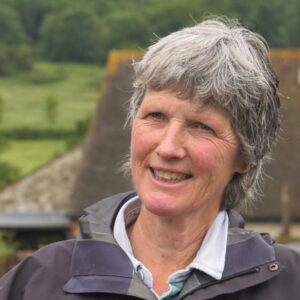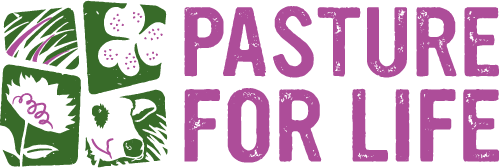What is CLEAR? by Fidelity Weston
 Fidelity Weston
Fidelity Weston
SIGN THE CLEAR PETITION HERE
Making food choices is something we do every day of our lives, in fact several times a day. Each time we decide to buy food or eat, we are supporting the method of production that a farmer or food producer has decided to follow. There are a huge number of decisions that these producers need to make that will affect the natural processes occuring in our fields, greenhouses and polytunnels, our woodlands and down to our rivers and seas. Our buying choices will have an impact on these decisions: how the land is farmed, the wider environment is nurtured, the animals are reared and also the wildlife protected. The more we become disconnected from nature, the more we forget these truths and the easier it is to buy products that have a detrimental impact. Hopefully one of the positives to come out of the last year has been that we are all more dependent on nature than we thought and want to do something at a personal level to make things right.
As a farmer I like to know that the families who buy our meat and eggs appreciate the way in which we have raised our animals; that they understand that our species rich meadows are awash with insects during the summer, that we are grazing our pastures to give them long rest times allowing them to grow tall and become a good habitat for the small mammals, amphibians and ground nesting birds. Our customers tell us how much they value the high animal welfare that this method of production gives to our cattle, sheep and chickens. They say they can taste this in the fresh, grassy flavours of our beef and lamb.
We are lucky, as we have a direct link to our customers who come to our farm to buy their meat. They can walk round the farm and see all this for themselves and this is part of their enjoyment in buying their meat from us. For us, labelling isn’t an issue, our customers buy on trust but most people don’t have this sort of access to a farm and purchase food from supermarkets where the link to the farm is tenuous. The longer the chain from farm to customer the more important the need for clear and honest labelling. Customers in supermarkets have no lesser right to buy food that has been well produced but they are at much greater risk from labelling that misleads by omission or inaccuracy.
We explain to our customers that, for instance, if you buy “grass-fed” meat it may only be 51% grass-fed; they never thought it would be anything less than 100% grass-fed, and are surprised this is not the case. There are so many similar examples across all food types I am not surprised that people find it all very confusing.
The Pasture-Fed Livestock Association is a membership organisation of mainly farmers but also butchers, chefs, vets, academics and others who want to promote the benefits of 100% grass-fed and change UK farming for the better. We describe as it as pasture-fed because this reflects the diversity of forage that our farmers grow; it is more than just grass. We set up the Pasture for Life certification scheme which is a guarantee that the meat is 100% pasture-fed. Yet until we get a clearer definition for the term “grass-fed” many people who are interested in supporting the 100% pasture-fed farming system think they are getting the genuine product when in fact they are not. There are lots of instances where farming systems like ours that nurture the environment are being held back by opaque labelling; it is not a level playing field.
There is a great deal more that we can do to help people make their choice and we are glad that the Government has said that it will review the regulations that underpin labelling, it is long overdue. That is why we have set up the Consortium for Labelling for the Environment, Animal Welfare and Regenerative farming (CLEAR). This brings together a wide range of farming, food and civil society organisations behind a simple manifesto which puts in place a framework for the delivery of an honest, clear and simple labelling system that clearly identifies the farming method of production. We want it to be mandatory for all food products to have such a label so everyone has the opportunity to make an informed decision. It is imperative that at this time of ecological emergency, people have the ability to make the right decisions for themselves and the planet without fear of being misled.
It is not going to be easy as labelling is complex but this makes it all the more necessary for us to find a solution, so we have set out a road map for how we think this can be achieved. Much of it is building on existing skills and expertise. We need to review and define the use and definition of specific terms that are currently used in a misleading way, extend the existing country of origin labelling requirements and build on the existing enforcement capacity to establish a recognised auditable benchmark against key metrics. Putting method of production at the heart of this assessment will lead to a recognition of those farming and production systems which result in better outcomes for wildlife, farm animal welfare and the wider environment.
We see this as a great opportunity to put the public at the forefront of driving the change we all so want to see happen if we are to safeguard the future for our wildlife, nature and the environment.
After all is it not a fundamental and basic expectation that food is produced in this way?
SIGN THE PETITION HERE



